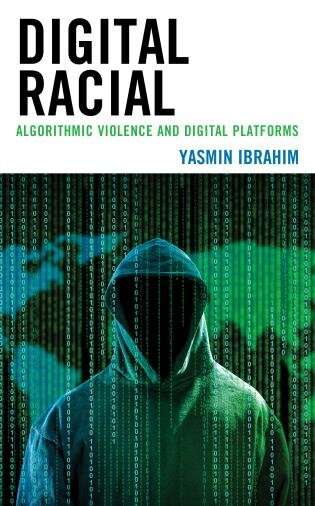
In an increasingly more virtual international, generation will advertise historical social inequalities except the machine is challenged and adjusted, warns a brand new e-newsletter from Professor Yasmin Ibrahim from Queen Mary’s Faculty of Trade and Control.
Prof Ibrahim’s newest e book attracts on analysis from pc science to sociology and demanding race research, in a ground-breaking demonstration of ways virtual platforms and algorithms can form social attitudes and behaviour.
“Virtual Racial: Algorithmic Violence and Virtual Platforms” explores how algorithms can goal and profile other folks in line with race, in addition to how virtual applied sciences allow on-line hate speech and bigotry. The e book additionally main points how algorithms are now not solely used for virtual platforms, reminiscent of social media and on-line buying groceries; they play a hidden however rising function in necessary public services and products like well being and social care, welfare, schooling and banking.
There are numerous examples of the risks that virtual applied sciences can pose—from notorious scandals like Cambridge Analytica knowledge misuse and racial bias within the U.S. courts’ possibility overview set of rules, to rising problems like self-driving vehicles being much more likely to hit darker skinned pedestrians and digital assistants now not figuring out various accents.
Prof Ibrahim highlights real-world examples of ways virtual platforms can expose and make stronger deep-seated inequalities—reminiscent of Fb’s set of rules contributing to the Rohingya genocide, during which an estimated 25,000 other folks had been killed and 700,000 extra displaced. Amnesty Global discovered that “Fb’s algorithmic techniques have been supercharging the unfold of destructive anti-Rohingya content material,” and the platform failed to take away unhealthy posts as it was once benefiting from the higher engagement.
Extra just lately and nearer to house, “The A—Degree Fiasco and U-turn through the United Kingdom Govt” (2020) noticed an set of rules created through examination regulator Ofqual downgrade scholars at state faculties and improve the ones at privately funded unbiased faculties, disadvantaging younger other folks from decrease socio-economic backgrounds.
In a similar way, Dutch High Minister Mark Rutte and his complete cupboard resigned in 2021, when investigations published that 26,000 blameless households have been wrongly accused of social advantages fraud in part because of a discriminatory set of rules. This ended in tens of 1000’s of fogeys and caregivers being falsely accused of childcare get advantages fraud through the Dutch tax government—incessantly the ones with decrease earning or belonging to ethnic minorities.
Bearing on her fresh paintings in “Applied sciences of Trauma,” Prof Ibrahim’s new e book raises the problem of ways easiest to average virtual platforms. Since algorithms lack the humanity wanted to pass judgement on what is also destructive to other folks, this process incessantly falls to low-paid employees on volatile contracts, pressured to take a look at huge quantities of disturbing content material. Prof Ibrahim argues that content material moderation must be handled as a hazardous industry, with law for employers and strengthen for workers.
Commenting at the e-newsletter of “Virtual Racial,” Prof Ibrahim mentioned, “Virtual applied sciences have the prospective to result in certain social alternate, however additionally they elevate with them the chance of spreading and intensifying current inequalities. I am extremely joyful to in the end be capable of proportion this e book with the sector, which I’m hoping will get started a vital dialog concerning the function of virtual platforms and the results it may have on equality.
“With the upward push of generation and its expanding function in our lives, it is extra vital than ever to be sure that virtual areas don’t seem to be replicating racial inequalities in our society. We will have to problem algorithmic inequality to stem discrimination, hate, and violence and push for extra inclusion and illustration in our virtual platforms.”
Quotation:
The darkish facet of AI: Guide warns that algorithms is also producing hate and discrimination (2023, February 15)
retrieved 21 February 2023
from https://techxplore.com/information/2023-02-dark-side-ai-algorithms-generating.html
This file is topic to copyright. Except for any honest dealing for the aim of personal learn about or analysis, no
section is also reproduced with out the written permission. The content material is supplied for info functions most effective.
Supply Via https://techxplore.com/information/2023-02-dark-side-ai-algorithms-generating.html


